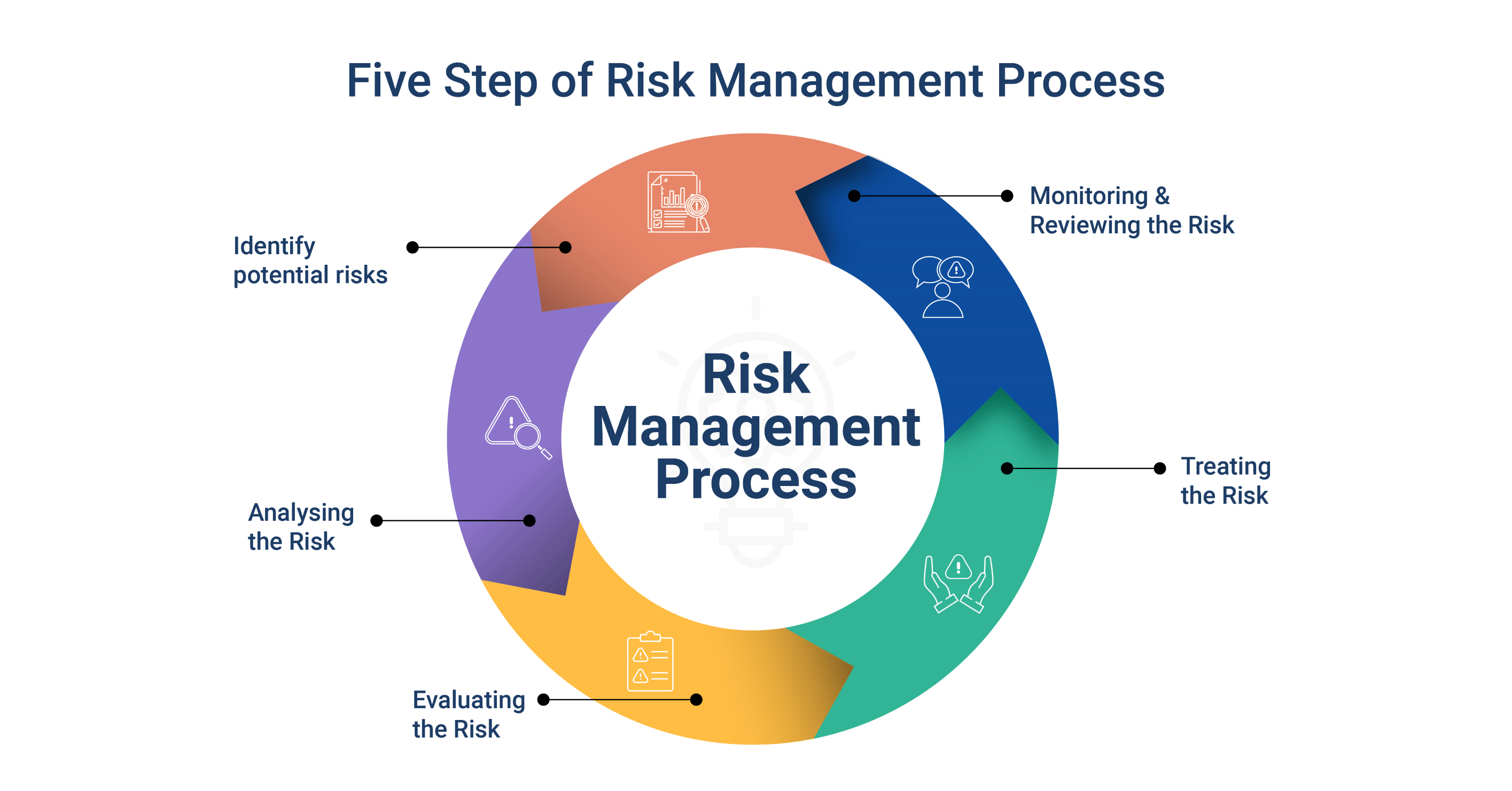What Is Risk Management?
Imagine we’re embarking on an exciting voyage to build an offshore wind farm. Our mission: harness the wind’s power while avoiding treacherous waters. Risk management is our trusty compass—it helps us navigate the unknowns. Here’s how it works:
- Risk Identification:
- Think of this as spotting hidden rocks or friendly dolphins in our path.
- We identify everything that could impact our project—good (opportunities) or bad (threats).
- These risks can mess with time, reputation, security, costs, environment, quality, and safety.
- Risk Assessment:
- Just like checking the weather forecast, we assess each risk’s strength.
- How likely is that storm? How big are those waves?
- Quantitative and qualitative methods help us measure the winds of uncertainty.
- Risk Response Planning:
- Our ship needs a plan. For opportunities, we adjust the sails to catch favorable winds.
- For threats, we batten down the hatches—prepare for rough seas.
- Our goal: ride the waves, not capsize.
- Monitoring and Control:
- As we sail, we keep watch. Storm clouds on the horizon? Adjust course!
- Regular check-ins ensure we stay on track.
- Awareness and Buy-In:
- Everyone aboard needs to know the game plan. Crew briefing time!
- When we’re all aligned, we row together.
- Integration into Daily Sailing (Management):
- Risk management isn’t a separate island; it’s part of our daily routine.
- Decisions? Yep, influenced by our risk map.
- Quantified Risk Assessment:
- We measure the waves—quantify risks. How likely is that storm?
- It’s like predicting weather patterns for our project.
- Contingency and Risk Provision:
- We stash extra supplies (contingency) for unexpected storms.
- The right-sized lifebuoy ensures we won’t sink.
Why Bother with Offshore Wind Risk Management?
- Smooth Sailing: Effective risk management keeps our project ship steady. No sudden squalls!
- Impress the Admirals (Investors and Client): Show them our well-charted course. They’ll trust our voyage and of course, their funds.
- Treasure Hunt: Risk management uncovers hidden gems (opportunities) while guarding against sea monsters (threats).
Navigating Offshore Wind Risks: A simple typical risk indetification guide
- Environment Risk:
- Imagine we’re building wind turbines at sea. Some spots are home to coral reefs or sensitive bird habitats.
- Risk: Disturbing these ecosystems could lead to legal trouble or upset seagulls. 🦜
- Site Condition Risk:
- Our seabed isn’t uniform. Some areas have weak soil, others are rocky. Wind speeds vary too.
- Risk: Foundations sinking, turbines wobbling, or unexpected underwater earthquakes. 🌊🌍
- Engineering Risk:
- Think of wind farm components as our turbine crew. If they’re poorly designed, it’s like having a clumsy sailor.
- Risk: Wonky foundations, grid connection glitches, or load-bearing mishaps. ⚙️
- Energy Generation Risk:
- Estimating energy yield is like guessing how much sun we’ll get at a beach picnic.
- Risk: Miscalculations mean less energy than expected. Our picnic might be a bit dim. ☀️
- Planning and Implementation Risk:
- Imagine building a sandcastle. Now scale that up to turbines. Planning matters—weather delays, installation hiccups, and customs clearance.
- Risk: Unforeseen storms (not the sea kind) or rookie mistakes. 🏗️
- Interface Risks:
- Engineering and construction need to chat. If they don’t, it’s like a ship’s captain not talking to the navigator.
- Risk: Misaligned plans, miscommunication, and a shipwreck of coordination. 🗺️
- Contract Risk:
- Contracts are like ship charters. Weak terms? We might drift off course.
- Risk: Legal storms—delays, disputes, and unexpected currents. ⚖️
- Permit Risk:
- Ahoy, sea and land permissions! If they’re delayed, our turbines stay docked.
- Risk: Waiting for paperwork while the wind blows elsewhere. 📝
- Quality Risk:
- Turbines and cables—quality matters. Passing commissioning tests is like getting a seaworthy certificate.
- Risk: Faulty gear, underperforming turbines, and grumpy inspectors. 🛠️
- Cost Overrun:
- Imagine building a sandcastle, but the tide keeps erasing it. Delays cost money.
- Risk: Missing tariff deadlines, budget blowouts, and investors raising eyebrows. 💸
- Unknown Risk (Cue Dramatic Music):
- Force majeure—fancy term for “stuff happens.” Storms, sea monsters, or alien invasions (okay, maybe not aliens).
- Risk: The unexpected, lurking in the fog. 🌪️👾
Remember, fellow wind sailors, risk management isn’t about avoiding waves—it’s about riding them like a pro. 🌟⚓ If you want to explore any risk islands further, just give me a shout! 😊 (Photo source: Internet)
